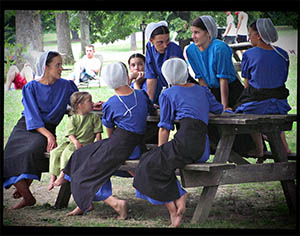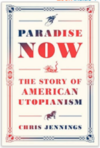Utopia
This idea, this ideal has been on people’s mind ever since.
I guess the idea of the Garden of Eden, the original myth of The Perfect Place in various the Biblical Traditions can also be found in many other cultures throughout the ages.
A perfect place, a place of harmony, equality and absence of hardship and pain.
The perfect dream to escape the realities of now, the imperfections of present man and society.
The grass is always greener on the other side of the hill 😉
The Greek root of the word Utopia means “no place” and at the same time it means “good place”.
Obviously a place too good to be true to be able exist in reality.
🙂
But yet, the dream stayed alive in people’s mind forever.

Of course, those were just words, but still this book has been hugely influential ever since.

Which the authorities of his time did not like very much and his smart head was ultimately cut off in 1535.
Nevertheless his book can be seen as the blueprint for numerous fictional works that try to imagine what Utopia could be.
And more than just as fiction, many attempts since then were made by real people in real places to create their version of this elusive idea of Utopia.
There have been religious, socialist, democratic, anarchist, technological, ecological, feminist, patriarchal, egalitarian, hierarchical, racist, left-wing, right-wing, reformist, free love, nuclear family, extended family, gay, lesbian and many more ideologies that found Utopia a fruitful place for their experiments.
As far as i know, most of them did not survive the realities of their time for too long or manged to have a huge impact on society as a whole.
Utopian communities who had a specific radical religious belief at their core made it the longest.
Usually those where people who were persecuted in their home countries for their belief and forced to move to far away lands to start anew together. I guess that this creates a strong enough bound to hold it all together – for a while.
Communities of the Shakers, Hutterites, Amish, Mennonites and Mormons still exist in larger numbers in the US and Canada, living their faith in more or less radical and isolationist ways.
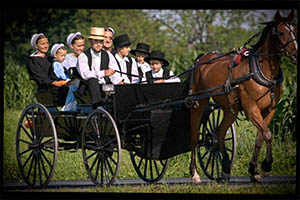
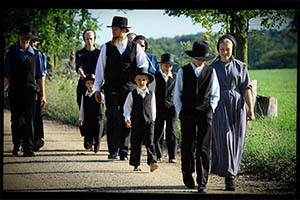
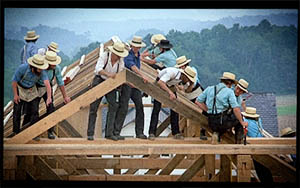
But besides those radically backwards looking religious Utopias, there have been others that attempted to go forward, to leave all those restrictions behind, to free the people of rigid ideologies.
North America has been a fertile ground for such revolutionary people and examples are sprinkled all over from the 1800s onwards.
Paradise Now – a well informed and smartly written book by Chris Jennings tells the story beautifully.
Maybe the best known of them is the Oneida Community, founded in 1848. On the basis of a radical Christian belief that the Christ has already returned in the heart of every woman, men and child, those people committed themselves to practice radical communal property and possessions, free love, complex marriage, freeing women of their traditional roles, mutual criticism and feedback between community members, establishing of a strong economic basis of businesses that make the community sustainable and so on.
All pretty cool stuff in my opinion!
Lasted approximately 30 years and was dissolved in 1887. The usual reasons 🙂
Anyway ….. onwards!
Jumping into the 1960s / 1970s, when cosmic wave ignited the “great awakening and uprising of youth” all over the world. Especially in the US & UK this resulted in throngs of young folks abandoned the old ways of their parents and society and often moved into the countryside to live in communes.
More or less structured and often psychedelic-drug-fueled chaotic places that had a rather short lifespan.
It was all very nice in summer, hippy-ish, flower power, girls in floating skirts and long hair (of course the guys with guitars as well ; )
But such freewheeling lifestyle usually did not survive a few harsh winters without money and ideological resources.
And all the so called free love and anti-authoritarian non-structure often left deep scars in the sensitive psyche of many such beautiful souls.
But out of that back-to-the-land commune movement appeared what now is known as the Intentional Communities and Ecovillages of today. Some of whom are definitely smaller or bigger Utopias-in-the-making.
Here i want to mention a handful of the more “promising” ones.
Trying to avoid the word successful ; ) because there is never real success if you want to reach the impossible – the ideal society.
Findhorn Community, Findhorn Foundation and Educational Center & Findhorn Eco Village
Scotland, founded in 1962, presently approx. 400 residents
ZEGG Community (Zentrum für experimentelle Gesellschaftsgestaltung or Center for Experimental Cultural Design)
Germany, founded in 1991, presently approx. 100 residents
Tamera (Peace Research Village & Education Center / Healing Biotope)
Portugal, founded 1995, presently approx. 200 residents
Germany, founded 1993, presently approx. 140 residents
Nowadays there has appeared a whole wealth and network of Ecovillages around the world.
They are loosely associated by the Global Ecovillage Network (GEN)
Damahur (Federation of Damahur)
Italy, founded 1975, presently approx. 600 residents
Auroville – City of Dawn, Experimental Township
South India, founded in 1968, presently approx. 2800 residents from 54 countries
There should be somewhere on earth a place which no nation could claim as its own, where all human beings of goodwill who have a sincere aspiration could live freely as citizens of the world and obey one single authority, that of the supreme Truth;
A place of peace, concord and harmony where all the fighting instincts of man would be used exclusively to conquer the causes of his sufferings and miseries, to surmount his weaknesses and ignorance, to triumph over his limitations and incapacities;
A place where the needs of the spirit and the concern for progress would take precedence over the satisfaction of desires and passions, the search for pleasure and material enjoyment.
In this place, children would be able to grow and develop integrally without losing contact with their souls; education would be given not for passing examinations or obtaining certificates and posts but to enrich existing faculties and bring forth new ones. In this place, titles and positions would be replaced by opportunities to serve and organise; the bodily needs of each one would be equally provided for, and intellectual, moral and spiritual superiority would be expressed in the general organisation not by an increase in the pleasures and powers of life but by increased duties and responsibilities.
Beauty in all its artistic forms, painting, sculpture, music, literature, would be equally accessible to all; the ability to share in the joy it brings would be limited only by the capacities of each one and not by social or financial position.
For in this ideal place money would no longer be the sovereign lord; individual worth would have a far greater importance than that of material wealth and social standing. There, work would not be a way to earn one’s living but a way to express oneself and to develop one’s capacities and possibilities while being of service to the community as a whole, which, for its own part, would provide for each individual’s subsistence and sphere of action.
In short, it would be a place where human relationships, which are normally based almost exclusively on competition and strife, would be replaced by relationships of emulation in doing well, of collaboration and real brotherhood.
The earth is certainly not ready to realize such an ideal, for mankind does not yet possess the necessary knowledge to understand and accept it nor the indispensable conscious force to execute it. That is why I call it a dream. Yet, this dream is on the way of becoming a reality. That is exactly what we are doing on a small scale, in proportion to our modest means. The achievement is indeed far from being perfect, it is progressive; little by little we advance towards our goal, which, we hope, one day we shall be able to hold before the world as a practical and effective means of coming out of the present chaos in order to be born into a more true, more harmonious new life.
Formulated for Auroville in 1954 by Mira Alfassa, known as “the Mother”, companion of Sri Aurobindo, the founder of Integral Yoga


